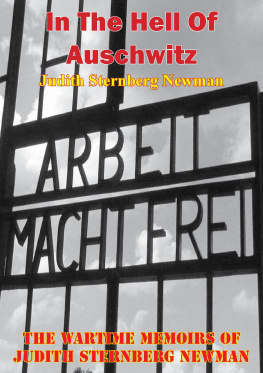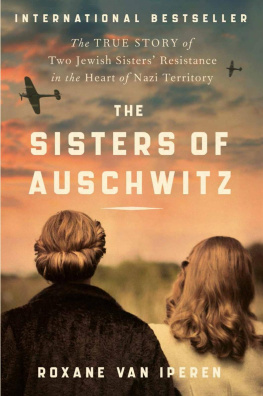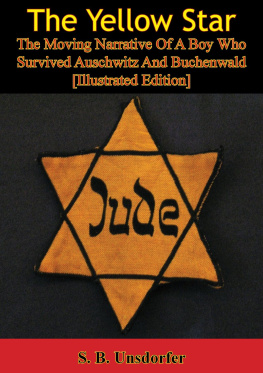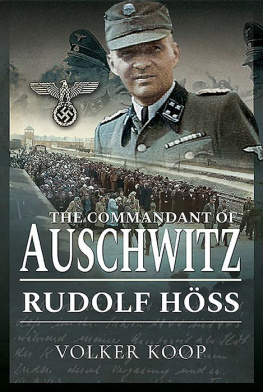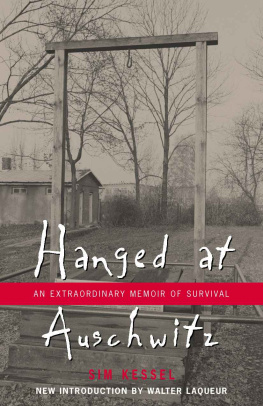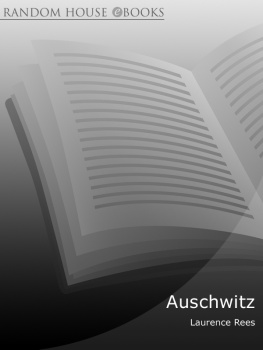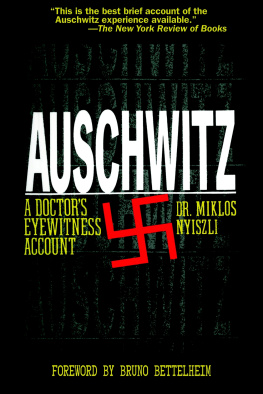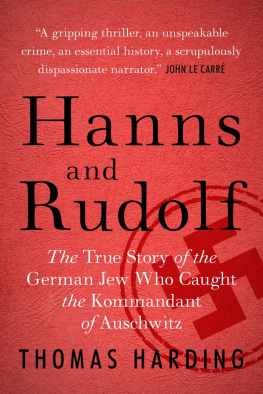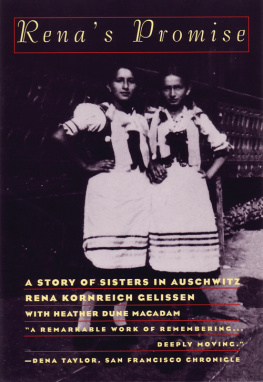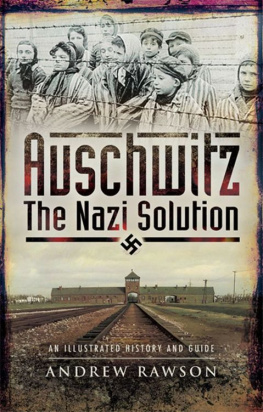

This edition is published by PICKLE PARTNERS PUBLISHINGwww.picklepartnerspublishing.com
To join our mailing list for new titles or for issues with our books picklepublishing@gmail.com
Or on Facebook
Text originally published in 1963 under the same title.
Pickle Partners Publishing 2015, all rights reserved. No part of this publication may be reproduced, stored in a retrieval system or transmitted by any means, electrical, mechanical or otherwise without the written permission of the copyright holder.
Publishers Note
Although in most cases we have retained the Authors original spelling and grammar to authentically reproduce the work of the Author and the original intent of such material, some additional notes and clarifications have been added for the modern readers benefit.
We have also made every effort to include all maps and illustrations of the original edition the limitations of formatting do not allow of including larger maps, we will upload as many of these maps as possible.
IN THE HELL OF AUSCHWITZ
The Wartime Memoirs of Judith Sternberg Newman
ILLUSTRATED
TABLE OF CONTENTS
Contents
DEDICATION
To the memory of MY FAMILY all of whom, except my father, lost their lives in Auschwitz; and to the memory of all the other victims who perished there.

IN MEMORIAM
MY PARENTS
Ismar Sternberg
Regina Sternberg
MY SISTERS
Charlotte Preis, ne SternbergAge 25
Herta SternbergAge 22
MY BROTHERS
Sally SternbergAge 26
Siegfried SternbergAge 22
Artur SternbergAge 18
MY FIANCE
Dr. Martin Tallert
CHARLOTTES HUSBAND
Werner Preis
AND THEIR LITTLE DAUGHTER
EvaAge 5
MY UNCLE AND AUNT
George Sternberg
Paula Sternberg
J. S. N.
I
I WAS seventeen years old when my dear father died suddenly of a heart attack. At the time I thought the world was coming to an end for me.
My fathers untimely death was a great tragedy for us all, and especially for my dear mother, who was now left alone with all her cares and worrieslife under Hitler was very hard for us Jews.
Since 1933 my parents had known only fear and anxiety about what the future might bring. I was the third-oldest of the children. My oldest sister, Charlotte, was married, but there were still five of us left for my mother to provide for. My youngest brother was a boy of twelve when we lost our father. My sister Herta was at home with my mother, and two of my brothers were attending special courses at a trade school in Beuthen in Upper Silesia, which was to prepare them for their emigration to Palestine. It was 1937. I myself had just begun my training as a student nurse in a Breslau hospital. My mother had been forced to give up our business, the running of which had gradually been made more and more difficult by the Nazis, and the family was living on the income from our holdings. Not for very long, though, for the Nazis took everything away from us, and soon we were no longer in possession of our properties.
But this was not the worst by far, nor the most feared. Life was getting harder all the time. Pogroms of the Jewish people had started, and my mother trembled for the life of her sons. My older brothers were planning to emigrate to Palestine, and in 1938 all formalities for the journey had been completed; but at the last moment the thought of leaving their mother and the rest of the family behind in such difficult times made them return their tickets and passports in order to stay with us and await a time for joint departure. The only happiness that remained for us was the warmth and harmony of our closely knit family circle.
In 1939 I was given an opportunity to go to England as a student nurse, and my mother with heavy heart gave me her permission to accept this post. Yet I also could not bear the thought of leaving and perhaps never again seeing my mother, and so I let my papers lapse. I remained at the hospital, where I completed my studies and became a registered nurse.
In 1940 we received permission to enter Paraguay for the purpose of settling there. We made our preparations and were all ready to leave with our overseas trunks packed and ready to be sent to Bremen. When we received our passports, we sent to the consul in Bremen to get our visas. But fate turned against us once more. We were unable to obtain a transit visa, and there was nothing left for us to do but return to Breslau and there continue our troubled existence.
After the war broke out, our life became worse day by day. Little by little, all of our common rights were taken from us. We were made to leave our homes and live in a few small rooms. Radios, gold, silver, and other articles of value had to be handed over, as well as our clothes and furs. We no longer had any right to our savings accounts. We were told how much we were expected to spend for our living expenses. We were forbidden to use trolley cars and railroads.
Jews were selected to do the dirtiest and heaviest jobs. Bicycles had to be surrendered, and people had to walk to work, often several kilometers, even in the depth of winter. Jews were deprived of their ration cards for clothing, resulting in a lack of working clothes and comfortable shoes. We were forbidden to use parks and public walks; the park benches bore in white lettering the words: Strictly off limits for Jews. Store signs proclaimed in large print: Jews will not be served, or Goods will not be sold to Jews.
Meat, vegetables, fruit, fats, and other items were stricken off our food-ration cards. We were required to wear stars bearing the word Jew on our clothes and coats. We were not allowed to visit movie houses and theatersin other words, our cemetery was our only place of relaxation and rest. Our synagogues had long since been burned down by the Nazis and party members, and religious services had to be held in makeshift quarters. Sometimes during the service stones were flung through the windows, usually hurled by members of the Hitler Youth Group. The door to our apartment had to be marked Jew, so that we were helplessly exposed to thievery and pilfering. All women and men were forced to adopt the epithet of Sarah or Israel.
Every four weeks we were required to report to the Gestapo, and if someone forgot to mention the by-name, this was sufficient reason to dispatch him to one of the annihilation camps in Poland. When this happened, the usual procedure was to return the urn containing the victims ashes to his Jewish community by parcel post, to be delivered upon payment of a certain sum. The cause of death, in most cases, was given as pneumonia, or stroke in the case of an older person. On every Jewish holiday there always were arrests and other pogroms. Nevertheless we suffered everything stoically, and we all believed it could not possibly get any worse. But still we were not left in peace.
The Jews were not the only ones persecuted by the Nazis. Nuns and monks were taken out of their cloisters, driven in trucks through the streets, and subjected to the mockery of the populace. Their habits were taken from them, and they were forced to work in factories. If they refused, they were put into concentration camps. Cloisters were shut down. Thus many ministers and priests were killed in the concentration camps because they would not yield to the Germans. Images of Jesus were removed from the churches and pictures of the Fhrer were substituted. They said that Jesus could not have been any better than the rest of the Jews, and they refused to worship a Jew. They shouted: Hitler is our God! Confirmations and weddings were held in the name of the Fhrer only. I remember that many people opposed this, but these poor unfortunates were simply disposed of. Parents no longer had any authority over their children; the Hitler groups were the educators. A parent, for instance, was not allowed to spank his child if he was wearing the uniform. Often a child caused his own father or mother to be sent to prison. Young girls were urged to have babies even though they were unmarried. They were told that not every girl could become a German wife, but all of them could be German mothers. The government paid a certain fee for each child, and the more children they had, the higher were the monetary rewards. Moral principles had sunk to a very low level, and young people knew no respect neither for God nor for their parents. They were brought up to hate everyone who was not of Teutonic descent. And they were so sure of their song: Germany Above All, Above All in the World. That was the reason why they possessed the audacity to inflict such unbelievable tortures on innocent people.
Next page
